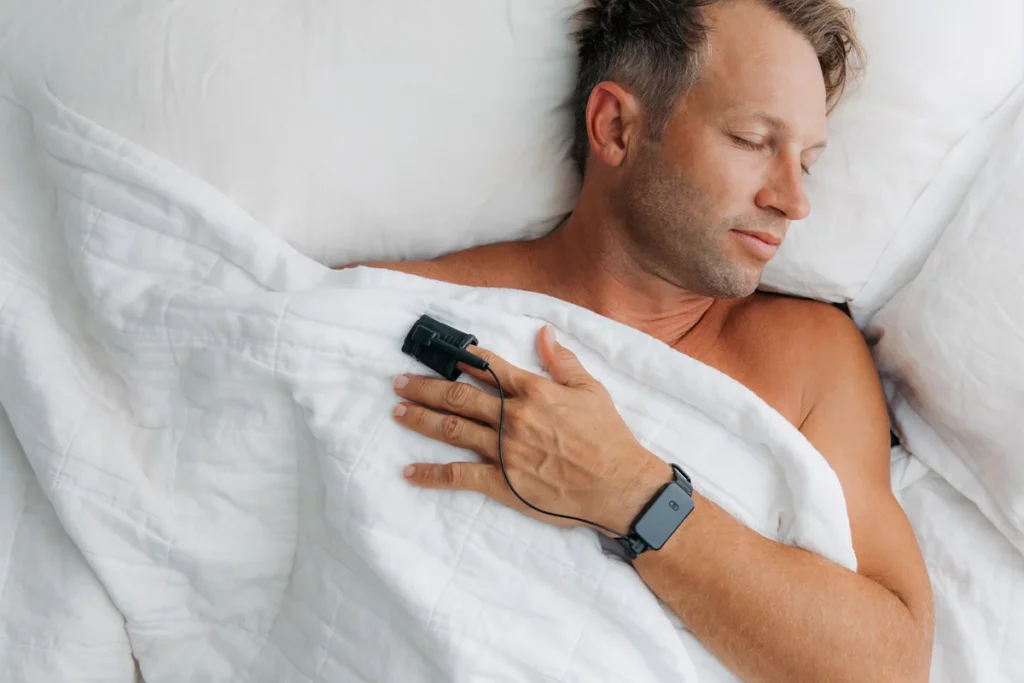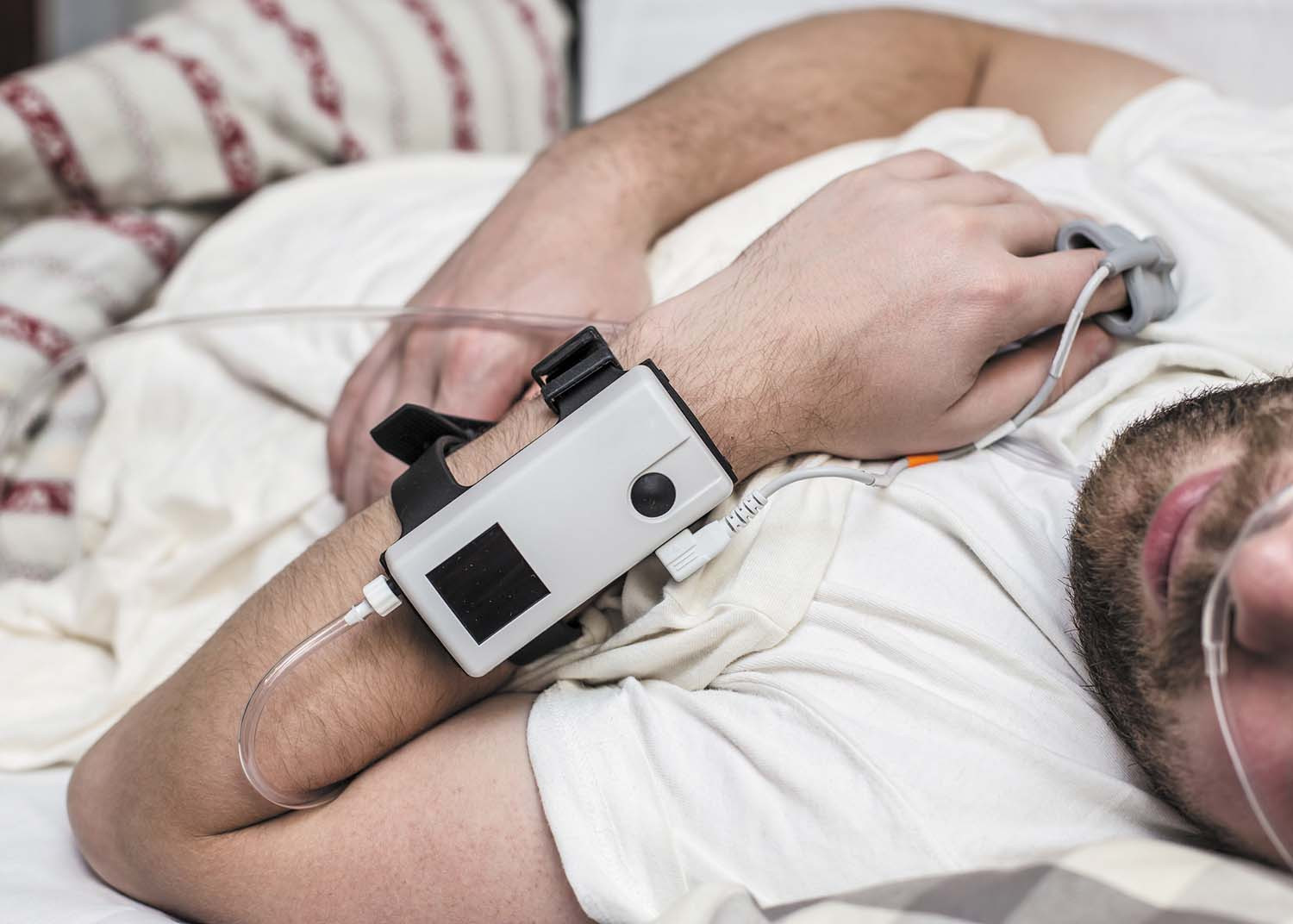Sleep is supposed to be a time of rest and restoration. But for millions of people, the night becomes a struggle for breath instead of rejuvenation. If you often wake up tired, groggy, or with a headache despite “sleeping” through the night, sleep apnea could be silently impacting your health — and you might not even know it.
In this guide, we’ll explore what sleep apnea is, how to spot the symptoms, why it’s more serious than you might think, and the most effective treatments available today.
What Is Sleep Apnea?
Sleep apnea is a sleep disorder that causes repeated interruptions in breathing during sleep. These pauses can last a few seconds to over a minute and occur dozens — or even hundreds — of times a night.
The most common types are:
- Obstructive Sleep Apnea (OSA): The airway becomes physically blocked, usually when throat muscles relax.
- Central Sleep Apnea (CSA): The brain fails to send proper signals to the muscles that control breathing.
- Complex (Mixed) Sleep Apnea: A combination of both obstructive and central sleep apnea.
While OSA is the most common form, all types can severely disrupt sleep quality and affect your overall health.
Common Causes of Sleep Apnea
Sleep apnea can affect anyone, but certain factors increase your risk:
- Excess weight or obesity: Fat deposits around the neck can block airways.
- Age: Middle-aged and older adults are more likely to develop the condition.
- Gender: Men are at higher risk, though post-menopausal women are also vulnerable.
- Family history: Genetics can play a role in airway structure and muscle tone.
- Smoking and alcohol use: Both contribute to airway relaxation and inflammation.
- Nasal congestion: Chronic nasal blockage can make breathing more difficult at night.
Recognizing the Warning Signs of Sleep Apnea
One of the biggest challenges with sleep apnea is that most people don’t realize they have it. The symptoms often occur during sleep, making self-diagnosis difficult.
Common Sleep Apnea Symptoms Include:
- Loud, persistent snoring
- Gasping or choking sounds during sleep
- Daytime fatigue or sleepiness even after a full night’s rest
- Morning headaches or sore throat
- Difficulty concentrating or memory problems
- Mood changes, irritability, or depression
- Dry mouth upon waking
If your partner notices frequent pauses in your breathing or loud snoring that disrupts sleep, it’s worth speaking to a doctor or sleep specialist.
The Hidden Dangers of Ignoring Sleep Apnea
Many people think snoring is harmless, but untreated sleep apnea can lead to serious long-term health consequences.
1. Cardiovascular Problems
Interrupted breathing strains your heart and blood vessels. Over time, sleep apnea can increase the risk of high blood pressure, heart attack, stroke, and irregular heartbeat.
2. Type 2 Diabetes
Poor sleep quality affects glucose metabolism and insulin resistance, both of which increase diabetes risk.
3. Cognitive and Mental Health Issues
Sleep deprivation caused by sleep apnea contributes to memory problems, poor concentration, anxiety, and depression.
4. Weight Gain
Sleep apnea disrupts hormones that control hunger and metabolism, making weight management more difficult.
5. Reduced Quality of Life
Chronic fatigue and irritability can affect work performance, relationships, and overall happiness.
How Sleep Apnea Is Diagnosed
If you suspect sleep apnea, don’t ignore it — diagnosis is simpler than you might think.
1. In-Lab Sleep Study (Polysomnography)
This is the gold standard for diagnosis. Conducted overnight in a sleep clinic, it monitors your breathing, oxygen levels, heart rate, and brain activity.

2. Home Sleep Test
For many, a home-based sleep study is more convenient. It uses portable equipment to measure breathing patterns and oxygen saturation from the comfort of your bed.
After testing, a sleep specialist interprets the results and determines whether you have sleep apnea, as well as its severity.
Effective Treatments for Sleep Apnea
Thankfully, modern treatments can help you breathe — and sleep — better.
1. CPAP Therapy
The Continuous Positive Airway Pressure (CPAP) machine delivers a gentle stream of air through a mask, keeping your airway open. It’s the most effective treatment for moderate to severe OSA.
2. Oral Appliances
Custom-made dental devices reposition the jaw and tongue to keep the airway open. They’re ideal for mild to moderate cases or those who find CPAP uncomfortable.
3. Lifestyle Changes
Some adjustments can make a big difference:
- Lose weight
- Avoid alcohol and smoking
- Sleep on your side instead of your back
- Maintain a consistent sleep schedule
4. Surgical Options
In severe or structural cases, surgery may be necessary to remove tissue, correct nasal obstructions, or reposition the jaw.
Real-World Example: A Sydney Patient’s Journey
Consider Sarah, a 42-year-old from Sydney, who struggled with exhaustion despite sleeping eight hours a night. After undergoing a level 3 sleep study, she was diagnosed with moderate sleep apnea. A combination of CPAP therapy and weight management dramatically improved her energy, focus, and mood — proof that timely diagnosis can be life-changing.
Taking the Next Step Toward Better Sleep Health
If you suspect sleep apnea is affecting your life, don’t wait. Reach out to a sleep specialist or clinic in your area to discuss testing options. Whether it’s through CPAP therapy, oral devices, or lifestyle modifications, effective treatments can restore your energy, improve your mood, and protect your long-term health.
FAQS
Sleep apnea can develop due to excess weight, aging, nasal blockage, or throat muscle relaxation during sleep. Lifestyle factors like alcohol and smoking also contribute to airway collapse, increasing the risk over time.
Mild cases may improve with weight loss or better sleep habits, but most require treatment. Untreated sleep apnea often worsens with age or weight gain, so professional evaluation is key.
Snoring is simply noisy breathing. Sleep apnea, however, involves pauses in breathing that reduce oxygen levels — a far more serious condition that requires medical attention.
CPAP is highly effective, improving sleep quality and reducing health risks like high blood pressure and fatigue. Consistent use is crucial for long-term benefits.




